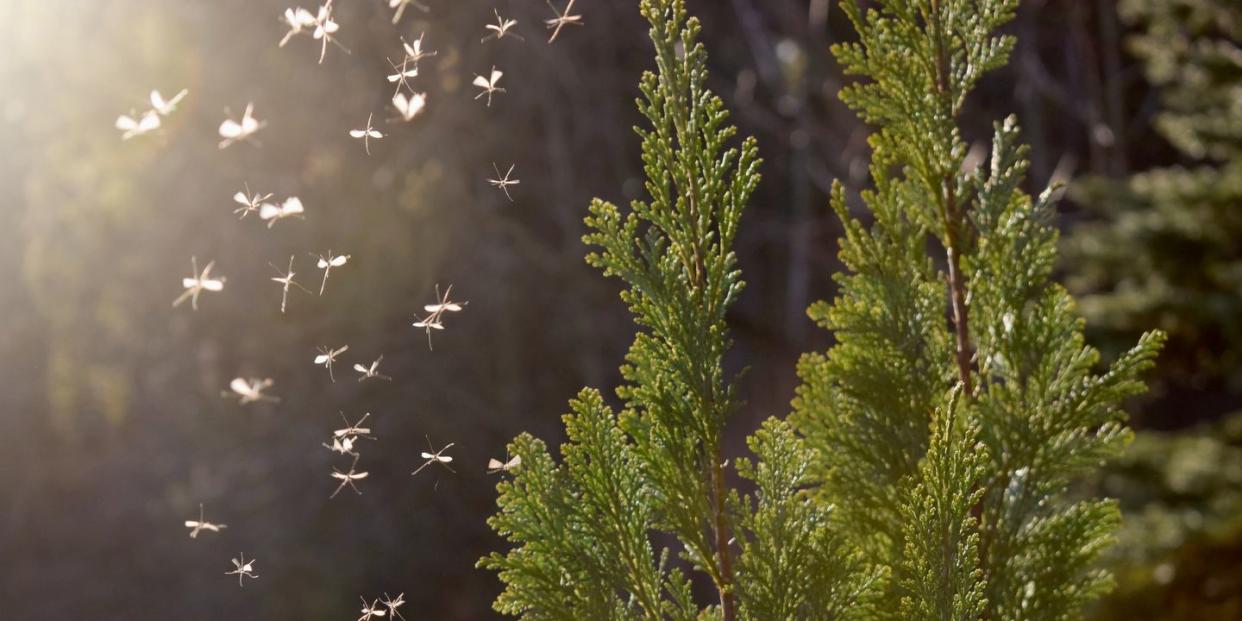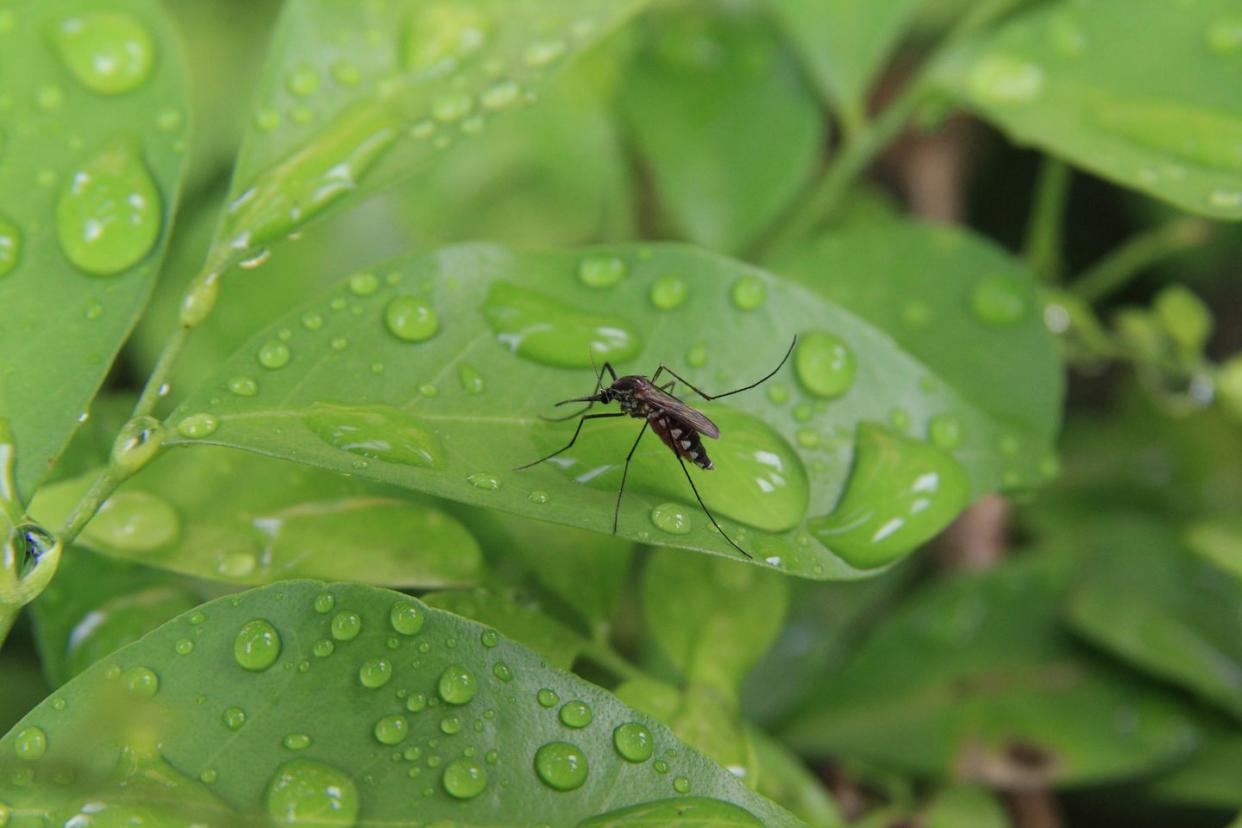Do Mosquito-Repelling Plants Really Work? Here's What You Need to Know

Stop in any garden center and you’ll find mosquito-repelling plants such as citrosa, lavender, mint, and lemon balm that promise to keep mosquitoes away when you’re enjoying outdoor activities in your garden. It seems like a brilliant idea: A natural solution to keep mosquitoes from crashing the picnic or ruining cocktail hour on the patio. But do mosquito-repelling plants actually work?
Sadly, not exactly. “Currently, the scientific community doesn’t recognize any plants that effectively repel mosquitoes,” says entomologist Elmer Gray, with the University of Georgia. “The idea is that certain plants contain essential oils that keep mosquitoes away. But studies have shown the plants may not produce enough oil to repel insects.” In fact, in one study, the mosquitoes landed more frequently on people surrounded by the plants than those not surrounded! In another, mosquitos even landed on the plants themselves!
While there’s evidence that some plant extracts do have repellant action, that doesn’t mean lining your patio with these plants will work. “Most of the research has been conducted with the plant extracts and oils, not the plants themselves,” says Daniel Markowski, PhD, technical advisor with the American Mosquito Control Association. “So, in theory, if you crushed certain leaves or flowers, you’d have better results than just planting them in your yard. But you’d need to know what part of the plant produces the repellent.”
Although mosquito-repelling plants aren’t the easy answer you were hoping for, there’s still plenty you can do to manage the mosquito population in your own yard. Because their bites can transmit diseases such as West Nile, Zika, and encephalitis, it’s important to protect your family during outdoor activities. And while you’re never going to eradicate all of them—there are more than 3,000 species worldwide— there are a few science-based techniques that help.
How to Repel Mosquitos in Your Yard
Get rid of standing water.
Mosquitoes need to lay their eggs in water to reproduce, so eliminating standing water will go a long way to reducing the numbers hatched. Common hideouts where mosquitoes like to breed include kids’ toys, bird baths, outdoor pet bowls, buckets, self-watering containers, low spots in the yard, clogged gutters and even the saucers underneath the flower pots on your patio or around your pool, says Gray.
Dump out standing water in these spaces, or add mosquito dunks or pellets containing Bacillus thuriengensis israelensis, or Bti. This is a naturally occurring bacteria that kills the mosquito larvae. It only affects mosquitoes and doesn’t harm beneficial insects such as butterflies and bees or fish, frogs, people and pets. Read the label and retreat the area every few weeks.

Use effective repellents.
Some people claim certain plants can be crushed and applied to your skin as a “natural” repellent, but that’s just messy and ineffective. “That seems [like] a particularly dangerous thing to do,” says Linda Chalker-Scott, PhD, professor and extension urban horticulturist with Washington State University. “Plants do contain a lot of natural defensive chemicals that can have adverse effects on people. There are many plants that cause dermatitis, for example.”
A much more successful approach is to use an EPA-approved repellent containing DEET, picaridin, or a plant-based repellent called oil of lemon eucalyptus (PMD). “Other plant-based, active ingredients approved by EPA include catnip oil, from nepeta cataria, known as catmint, and 2-undecanone, made from the stems and leaves of wild tomato plants,” says Gray. “Most of these plant-based materials do not produce repellency for as long as DEET but are nearly as effective during the first hours of exposure.” Follow the labels for how long each substance lasts.
Another super simple way to keep these insects away is using a box fan in your seating area when you’re outdoors; they don’t like to fly in a strong breeze. Also, keep grasses trimmed near your patio or pool because adult mosquitoes like to hide out there during the day. Finally, wear loose-fitting, light-colored clothing, which is less attractive to mosquitoes and other biting insects, says Gray.
Should I plant mosquito-repelling plants and herbs?
Some research shows that extracts from plants such as marigolds, lemongrass, catnip, lavender, lantana, rosemary, garlic, basil and thyme may offer some level of repellency—but remember, it’s the extracts, not the plants that have been tested, says Markowski. So, add these plants to your garden if you like the look or fragrance of them, but don’t count on them to protect you or your family from bites.
You Might Also Like
